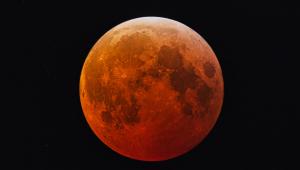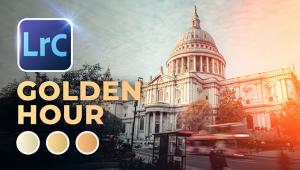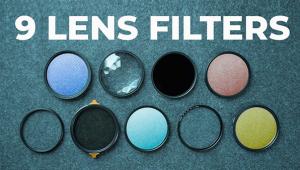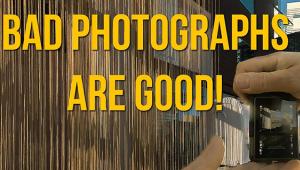I am really thankful to you for sharing such a nice information about Epson Stylus Pro 4800. Keep posting information like this.
Epson’s Stylus Pro 4800; Monochrome Digital Printing Has Arrived Page 2
The advanced black and white settings are what intrigued us most; this is
accessed via Print Settings. This interested us because this is where Epson
asks us to give up our normal "No Color Adjustment" workflow and
surrender ourselves to their driver. After you choose the paper note the "Color"
menu; click on it to drop down "Advanced B&W Photo" option.
Then click on "Advanced Settings" and choose either 1440 or 2880dpi,
the latter being finer and slower. Most of what we did was in the 1440dpi setting,
and we were hard-pressed to see a great difference between the two, but it's
nice to know it's there. Click "high speed" off.
You might be tempted to click on the "Color Toning" setting at the
base of this screen, but hold off and go to the Printer Color Management Settings
instead. Here you're presented with a setup menu that shows a prototypical
image with a color wheel and various settings. This is a vast field of play
with many options. The first is "Color Toning," like the previous
screen, and here you can adjust for Cool, Warm, and Sepia. Cool, for darkroom
fans, is akin to Brovira in Dektol; Warm is like Ilford Warmtone in Selectol
while Sepia is like Portriga in Selectol Soft--no kidding.
 |
|
|
Now, each of us has our favorite look for different prints, but I can assure
you that these chemical/silver analogies are very close to results. We were
very pleased with this set of options, and they produced the best black and
white prints we have ever seen from an Epson printer--no bronzing, and,
look ma, no metamerism! Prints done Cool stayed cool, unlike prints from the
now discontinued Epson 2200P and especially the 2000P, which often turned a
sickly green overnight. Warm prints had good depth and Sepia, not our favorite
effect, had a warm, golden glow. Our only criticism was that the Cool settings
seemed to kick up print contrast as well, sort of like a sharpening effect,
but you can mess with Gamma either in image setup in Photoshop or in the driver
software to counter this.
There are numerous other controls in this dialog box, and you are free to play
with them to your heart's content. The preview image is not live (something
we hope that Epson addresses in future editions of this Color Management control)
so is not particularly helpful. But if you like to add some color to your monochrome
image then you can play with the color wheel and tilt it toward any color cast
you desire. Our solution to this was to work the image in Duotones in Photoshop,
switch from Duotone to RGB mode and then use ColorSync printing. This matched
exactly what we had on screen, and gave the most pleasing results.
 |
|
|
The prototype image in the Advanced Black and White mode setup box does have
a fairly good range of densities from which to judge the effect of your color
cast choices, but it's just too loosey-goosey for us. Note that tweaking
is also available from the Dark or Darker options in this window in "Tone"
and that you can lower contrast for the Cool setting using the Contrast slider
as well. One more control worthy of note is the Highlight Point Shift, which
to our mind is like dropping the Output setting in Levels, and is used to suppress
highlights. This should be used discretely, but we often drop Output to 244
in Levels to control "hot" highlights, particularly when bright
clouds are part of the image. But be careful not to suppress highlights too
much, as this can yield a flat look to prints. Mac and Windows settings are
similar, though the screen will be different.
After working with the Epson Stylus Pro 4800 for a good many print runs we can
say that it produced excellent color prints and the best black and white and
monochrome images we have ever seen from an Epson printer, and in fact from
any other inkjet printer we have worked with in the past. This all bodes well
for future manifestations of the Epson drivers, and although we were at first
loath to surrender our "old" workflow to Epson's control,
the prints produced tell the tale. This is, quite simply, a revolution in black
and white printmaking, one that we trust will open the floodgates to a new day
for monochrome printmakers. If this sounds a bit breathless, all we can say
is that having suffered through the manifestations of inks and printers in the
past, we can all now breathe a sigh of relief and move on to what black and
white is about without having to worry about shifting, bronzing, and the associated
frustration many of us felt in the past.
Of course, the $1995 price tag will be prohibitive to many, but if this is any
indication of what the Epson drivers and inks can do then the coming R2400 will
be a big hit. And yes, at about $70 per ink cartridge (with eight inks) for
this printer, refilling ain't cheap, but if you print for pay or the gallery
wall, the 4800 will eventually strike you as a good investment.
For more information, contact Epson America, Inc., 3840 Kilroy Airport Way,
Long Beach, CA 90806; (800) 463-7766, (562) 981-3840; www.epson.com.
- Log in or register to post comments


This latest technology would be so much helpful for the photographers. Better and innovative printing could also boost up your business. For instance, for your business you could print better promotional items as well as silk business cards.

Very efficiently written information. It will be priceless to anybody who uses it, together with myself. Sustain the good work – for positive i will try extra posts.

This monochrome digital printer that has arrived in the market seems to be the interesting one. surely many of the printers are going to buy it.
Digital Marketing
http://www.cereusgraphics.com/integratedmarketing.html

































